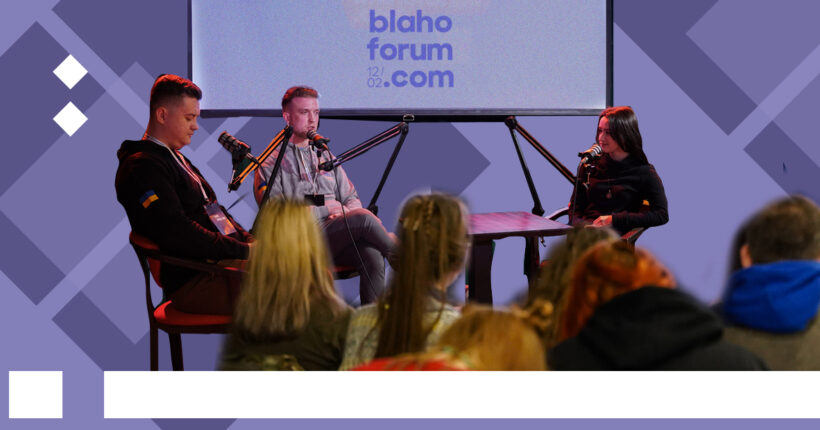
What is the problem?
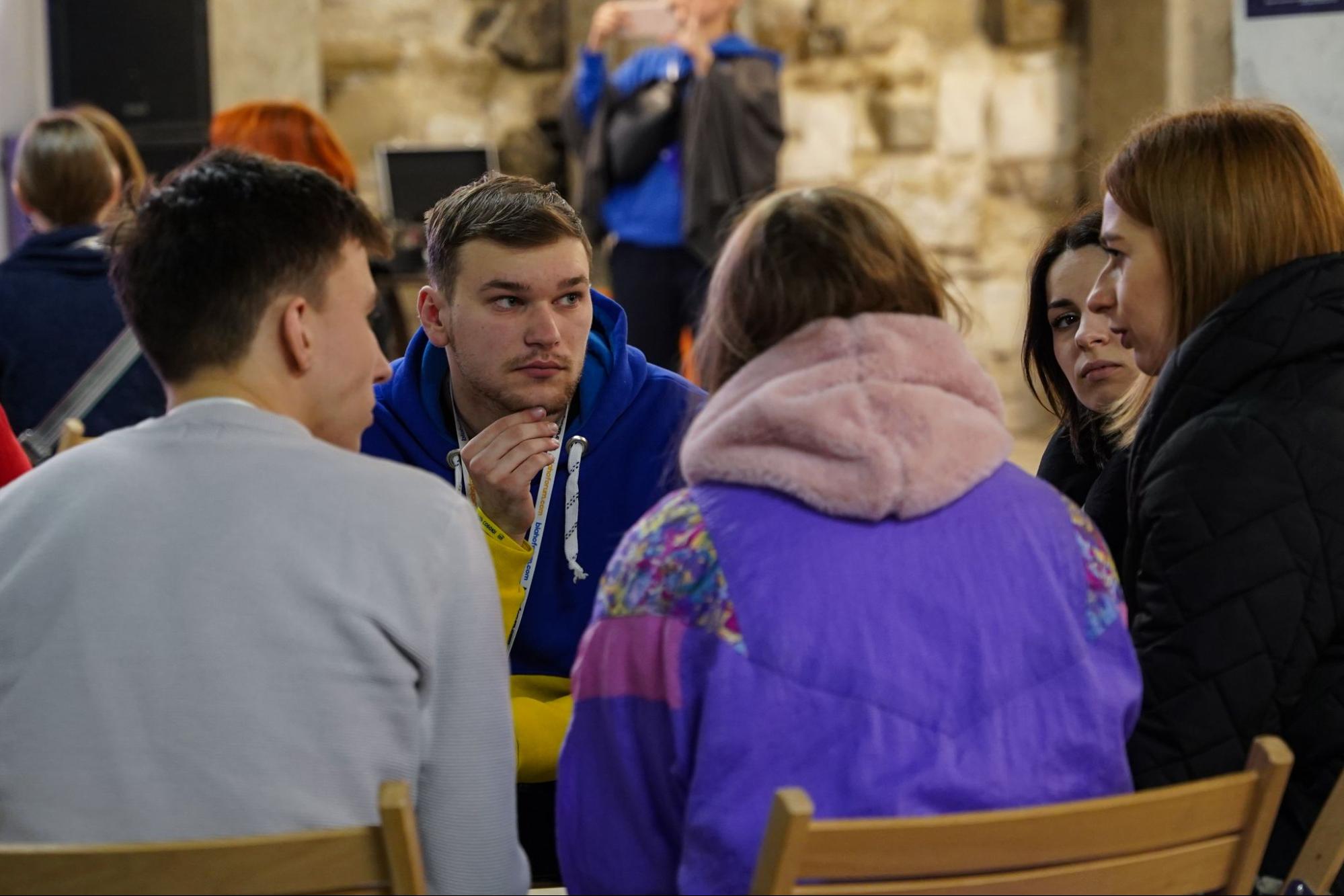
In no other country does the culture of philanthropy develop as rapidly as in Ukraine, despite the more pronounced institutionalization of the third sector in the USA, Australia or Canada. According to the British charitable organization CAF (Charities Aid Foundation), Ukraine ranked 10th among 119 countries in the 2022 global charity index. The push comes from the Ukrainians, who became a blood supply system for the Ukrainian army or a shelter for families affected by Russian aggression in the first months of the large-scale invasion. According to the big data platform VKURSI, for the year, as of April 2022, the dynamics of registrations of charitable organizations increased 12 times.
However, the same people are still active in this area, who had to build up aid capacities and respond to new challenges. War fatigue, fundraisers lost between news, and changing priorities of foreign partners and financial donors are factors that complicate benefactors' activities. However, the professional charity community is trained in systematic work.
Maryna Pinkevych's volunteerism grew stronger as soon as she joined the Plast movement. She is a communicator of the Plast Lviv volunteer headquarters, which has helped hundreds of Ukrainian defenders. Plast member says earlier fundraisers were closed in a matter of days, but the situation has changed: "Now time is not in our hands." With a shudder, she remembers a recent case when the headquarters team sent a pickup truck with winter uniforms, food, trench candles, and stoves to Bakhmut, but the transport reached the unit a few days after its commander died. "It is difficult to receive such news and realize that we cannot act as quickly as usual. The main thing is that the aid does not stop, and people accustom themselves to a culture of charity, not one-time support of the Ukrainian army," says Pinkevych.
Rostyslav Yuzkiv provides military and emergency personnel with means of tactical medicine. He is part of the team of the charity fund Digital Fox. As for the lion's share of funds that help in conditions of intense hostilities, the number of requests for help that exceeded the available resources became a challenge for Digital Fox. Yuzkiv is convinced that creating a charitable community will overcome this problem and increase charity's sustainability in Ukraine: cooperation should be established for systemic assistance. Regardless of direction, each charitable institution is a cog in the integral mechanism of victory. "Instead of chaotically dealing with all requests, you can specialize in something specific, for example, cars, and pass the rest to colleagues from other funds," the volunteer adds.
Ростислав Юзьків забезпечує військових та надзвичайників засобами тактичної медицини. Він є частиною команди БФ "Цифрова лисиця". Як і для левової частки фондів, які допомагають в умовах інтенсивних бойових дій, для "Цифрової лисиці" викликом стала кількість запитів на допомогу, що перевищувала наявні ресурси. Ростислав переконаний, що подолати цю проблему та додати стійкості благодійності в Україні зможе створення благодійної спільноти: для системної допомоги потрібно налагоджувати співробітництво. "Кожна благодійна інституція, незалежно від спрямування, є гвинтиком цілісного механізму перемоги. Замість хаотично братися за усі запити, можна спеціалізуватися на чомусь конкретному, приміром авто, а решту передавати колегам з інших фондів", — додає волонтер.
What is the solution?
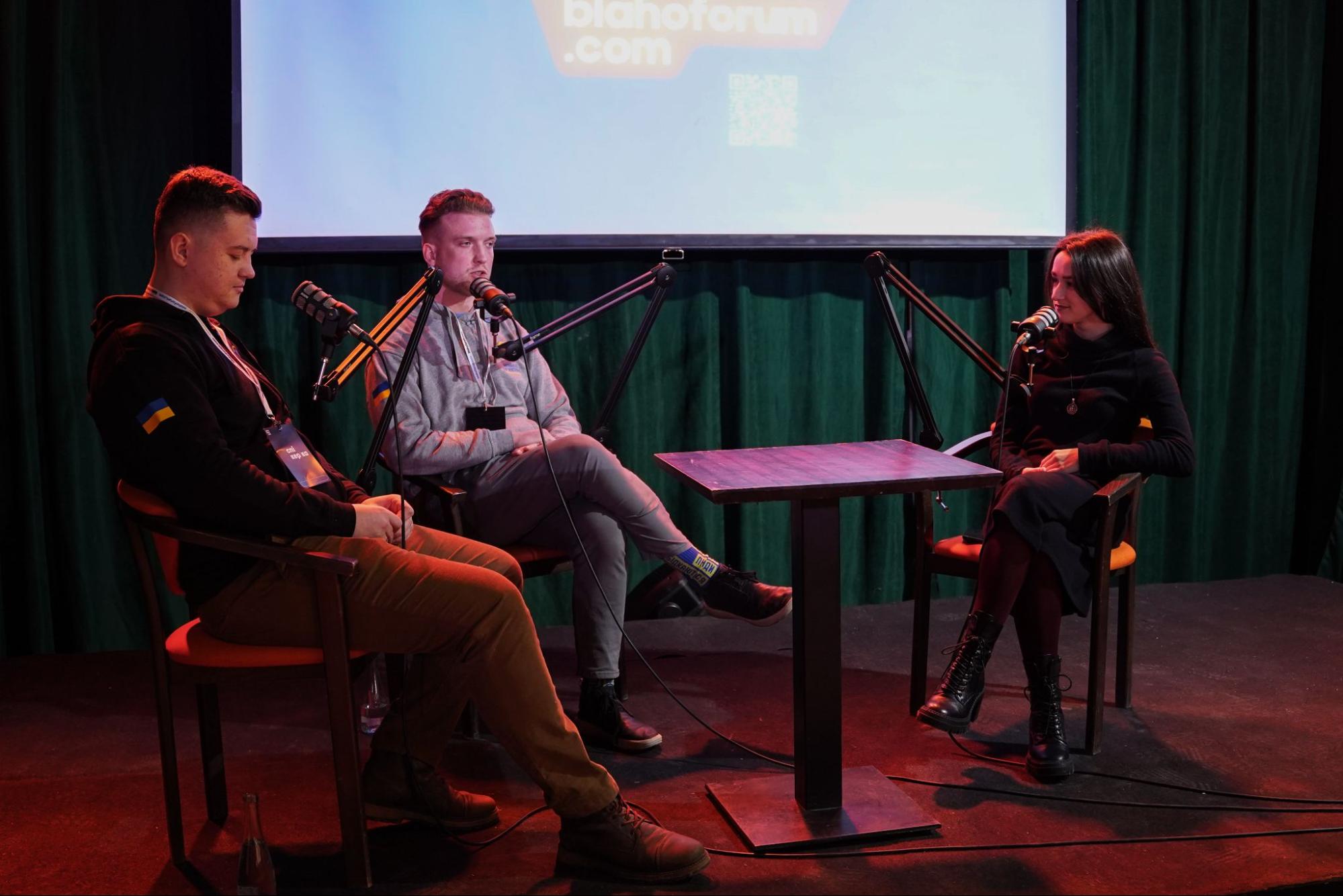
Russia's large-scale invasion of Ukraine has urged the need to jointly resolve legal issues, unite and build a charity mechanism. Like most organizations, the Wheels of Victory charity fund arose at the beginning of a full-scale invasion. Its team provides military units with four-wheel drive pickups, trucks, and evacuation vehicles. In their work, Wheels of Victory experienced what all Ukrainian philanthropists face — a lack of human resources, legal obstacles, hundreds of requests, and insufficient funds. So they decided to help them solve these problems.
Myroslav Kolodiy, the foundation's operations director, says the solution is to pool communities' energy and scale up assistance to Ukrainian defenders. "Alone, we can do a lot, and with joint efforts — even more," adds Kolodiy. The fund idea was conceptualized by the Department of Youth Policy of the Lviv City Council and MoloDvizhCentr. Lviv from the TVORY! network of youth spaces. This is how a platform called blahoforum.com for organizations united by common values and goals appeared. Three elements were coded in the name: blaho — charity, forum — event format, and com for community.
How does it work?
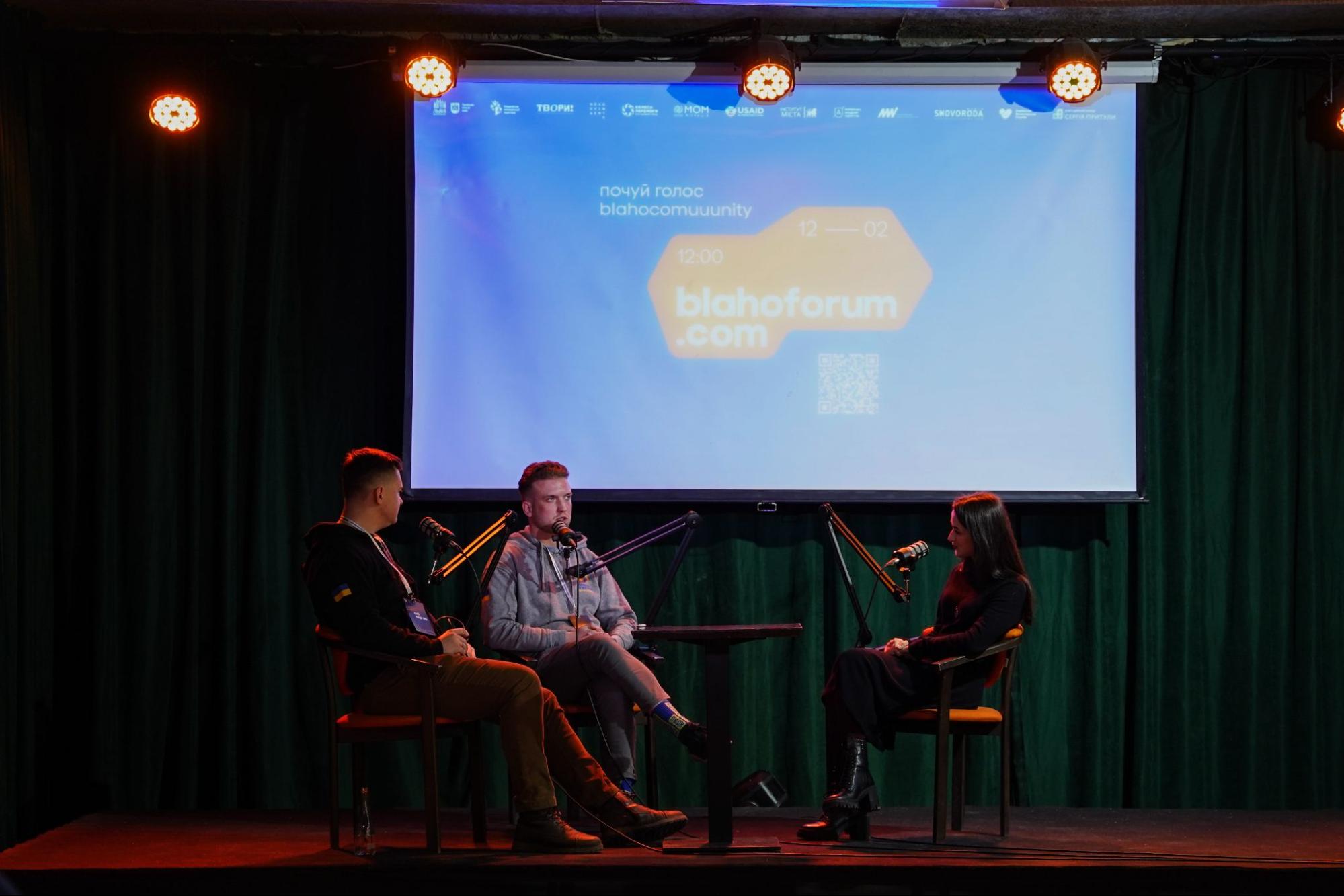
The intended forum took place on February 12 in Lviv, but there was a lot of work before that day.
Yulia Pass, one of the organizers of the event and a representative of the youth policy department of the Lviv City Council notes that the fact that it was held for the first time made the forum much more complicated: it was necessary to create a corporate style, work out the tonality of the texts, create promotional videos so that the idea of the value of the community resonated in each fragment.
From the registration beginning, the team expected participants from the Lviv branch, but applications also came from other regions, including Kyiv, Chernihiv, Ternopil, and Odesa regions. In the end, representatives of 40 charitable organizations visited the forum. Pass says that the organizers had hoped for a more significant number of participants. Still, she is convinced that the next event will bring together more participants because it drew attention to the need to build a community.
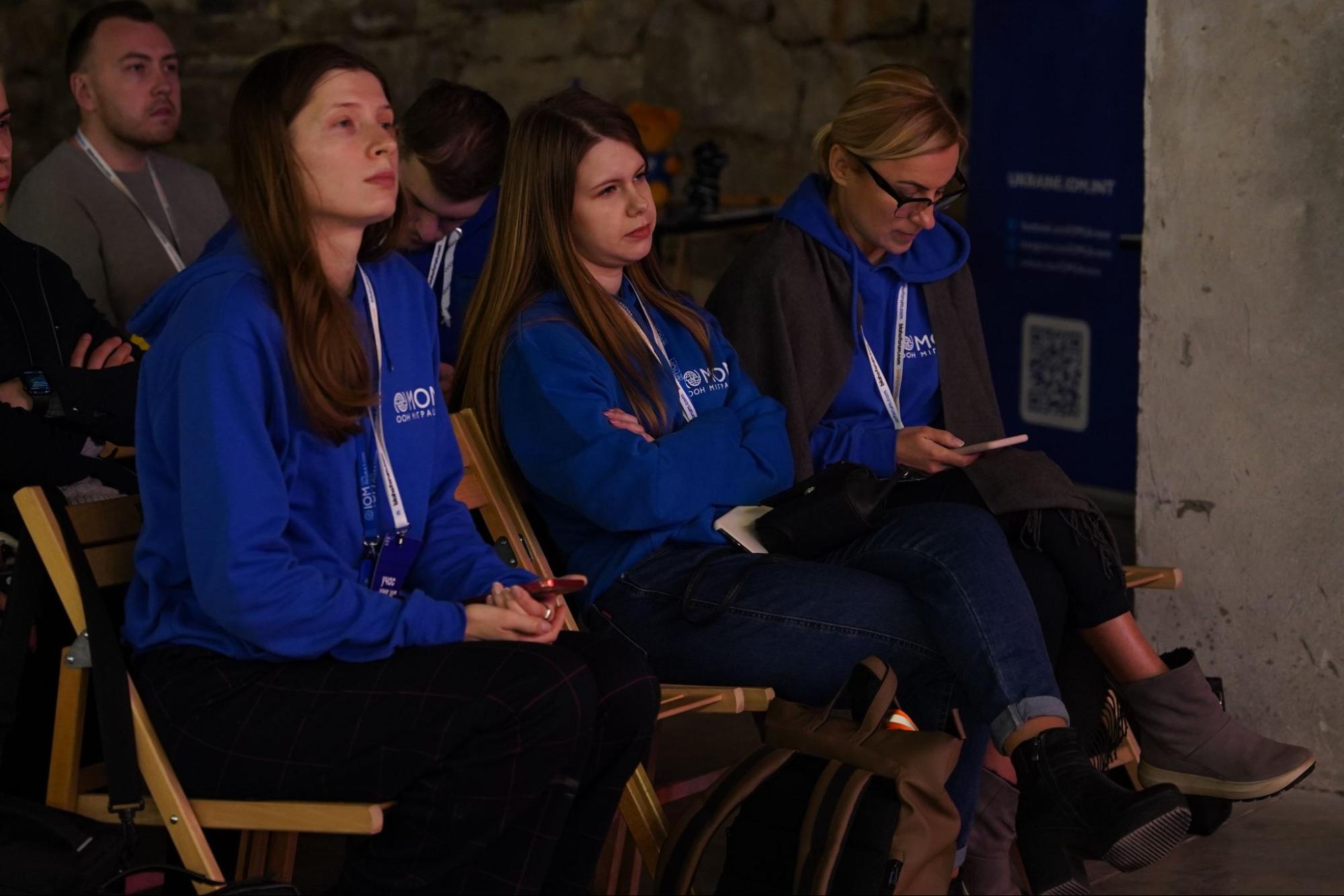
Oleksandra Mandrysh knows well how to coordinate and establish work between different groups. She is the project manager of MoloDvizhCenter.Lviv, so she joined the event. "Communities are formed not in one month and not by one project, but by stable interaction, the development of formal and informal processes. The forum's purpose was to lay the foundation for this and show why it needs to be done in the future," Mandrysh adds.
In addition to building a community, the team sought to solve issues that organizations face. Their answers identified three areas: legal aspects of charity, fundraising, and the need for partnerships. For this purpose, Anna Bondarenko, head of the Ukrainian Volunteer Service, the team of Wheels of Victory charity fund, Maksym Terletskyi, acting director of the Institute of the City, and Melania Podolyak, coordinator of the Serhiy Prytula charity fund in Lviv, shared their experience. Separately, the organizers provided networking so that benefactors could get to know each other, talk about their fuckups and implemented cases, and exchange ideas. Networking was moderated by Veronika Chuprina, mentor of the Ukrainian Leadership Academy.
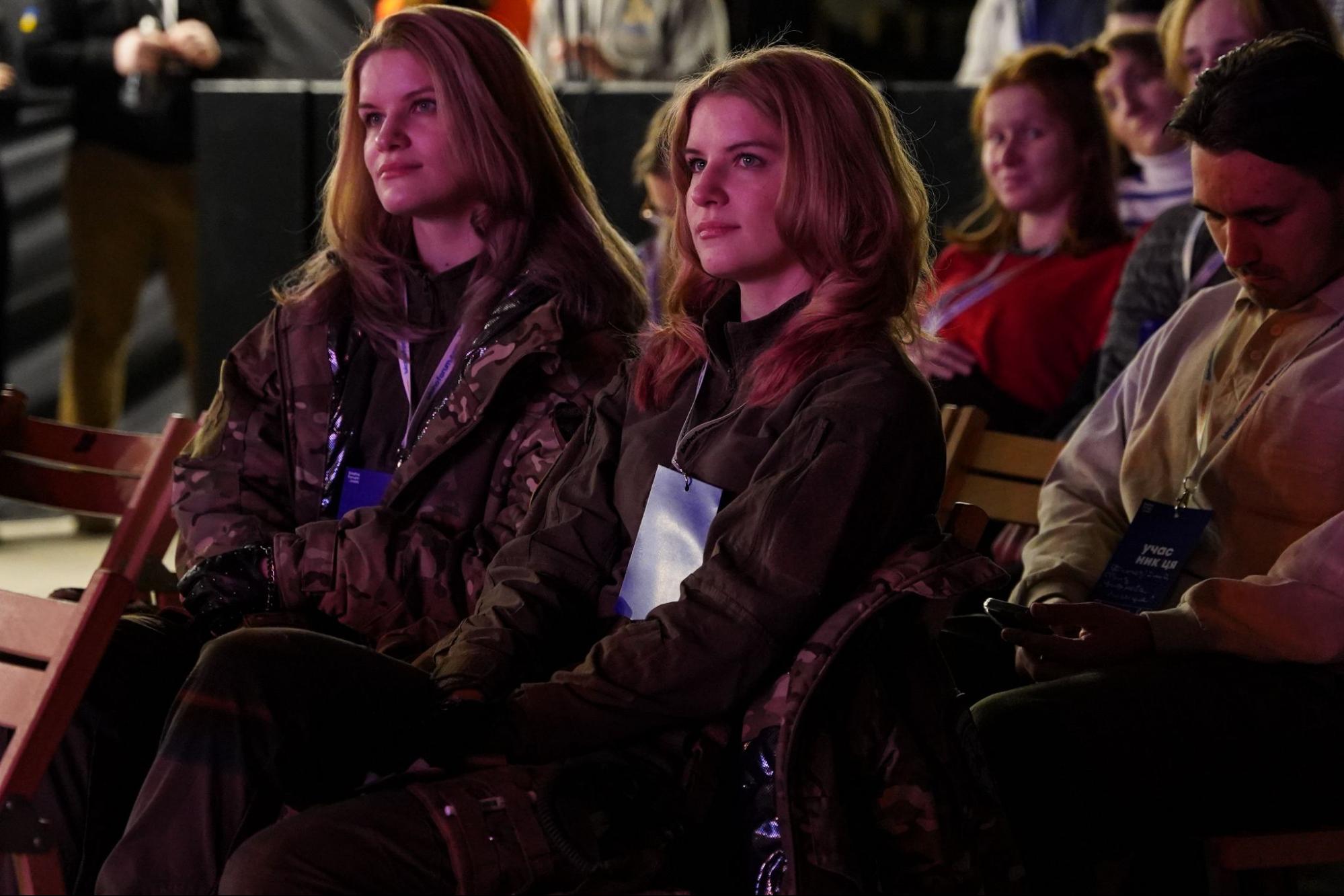
Access to a joint chat was opened for the participants, and a virtual whiteboard with information about each of the organizations was created: the platforms will function fully even after the end of the forum. Bohdana Duma, a volunteer, and coordinator of the NGO Women's Union of Lviv Region, says benefactors need an opportunity for quality interaction because free time is limited. "If we organize requests from organizations and enable sharing of experience, we will create opportunities for systemic and professional charity," says Duma.
Does it really work?
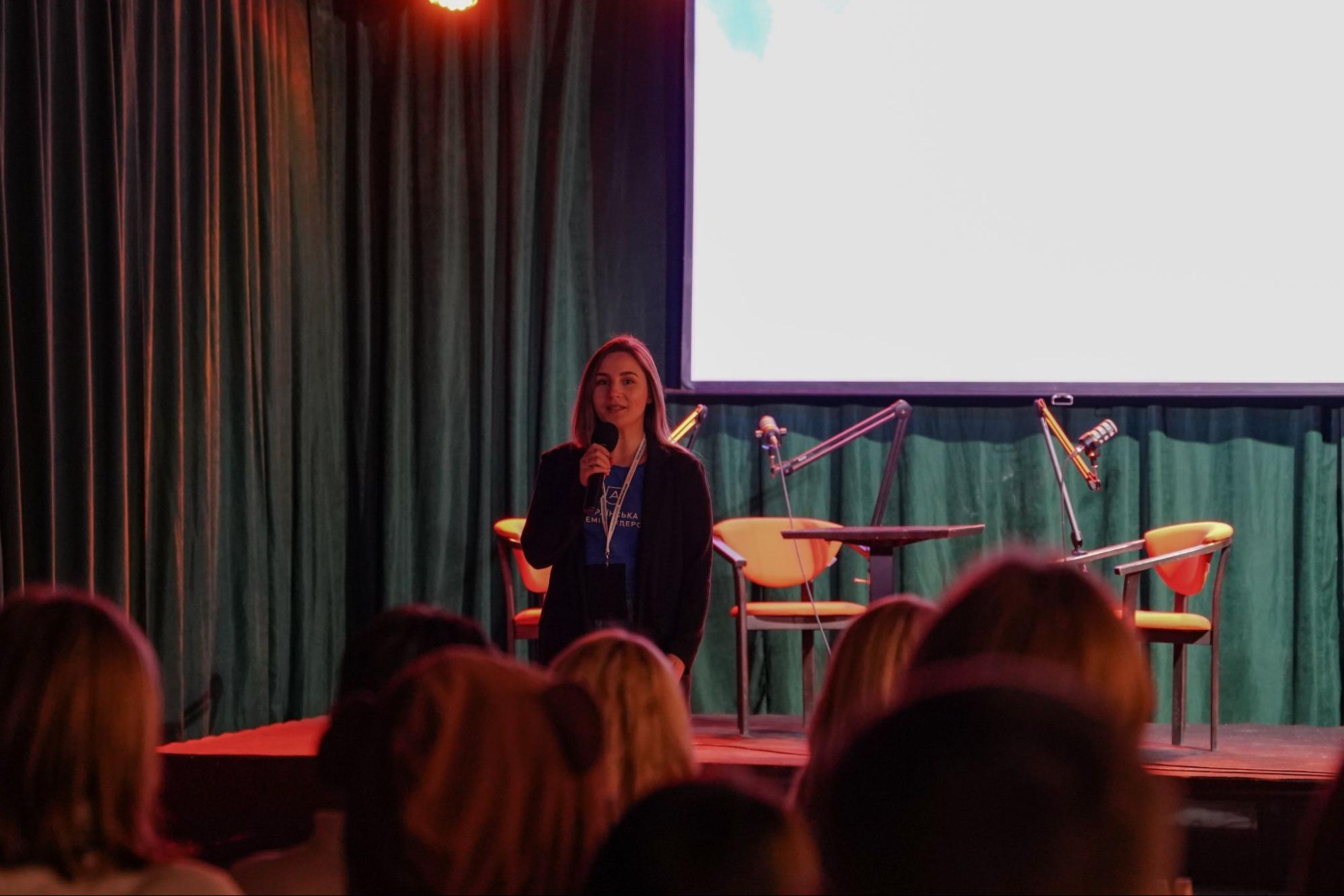
During the event, organizations managed to join charity advocacy groups, expand their contact base or agree on joint initiatives: for example, providing defenders with evacuation transport or helping with medical equipment. Volunteer Dzvinka Toch shares that it is interesting to watch how the event takes on new meanings and encourages people to talk about themselves. For her, the forum became a reason to look beyond the boundaries of usual activities: "These people have the same aspirations, problems, and need for support. Individually, each of them can do enough, but in synergy, they can do even more," adds Torch.
Yarko Bulyshyn, the head of the Lviv branch of Plast, is convinced that such events strengthen the valuable capacity of charitable organizations because it is an opportunity for representatives who have heard about each other but did not have the chance to interact to get to know each other. "Institutions should move in this direction and encourage interaction so that organizations have a voice among other associations," says Bulyshyn.
"The growth area of the project is to continue increasing the community," says project manager Mandrysh. In order to maximize the benefit of the forum, and even more so, to attract large funds, it is necessary to refine the format and create opportunities for further networking. Like her team, Mandrysh hopes other regions will take the initiative and unite those who tirelessly help Ukrainians during the war.






